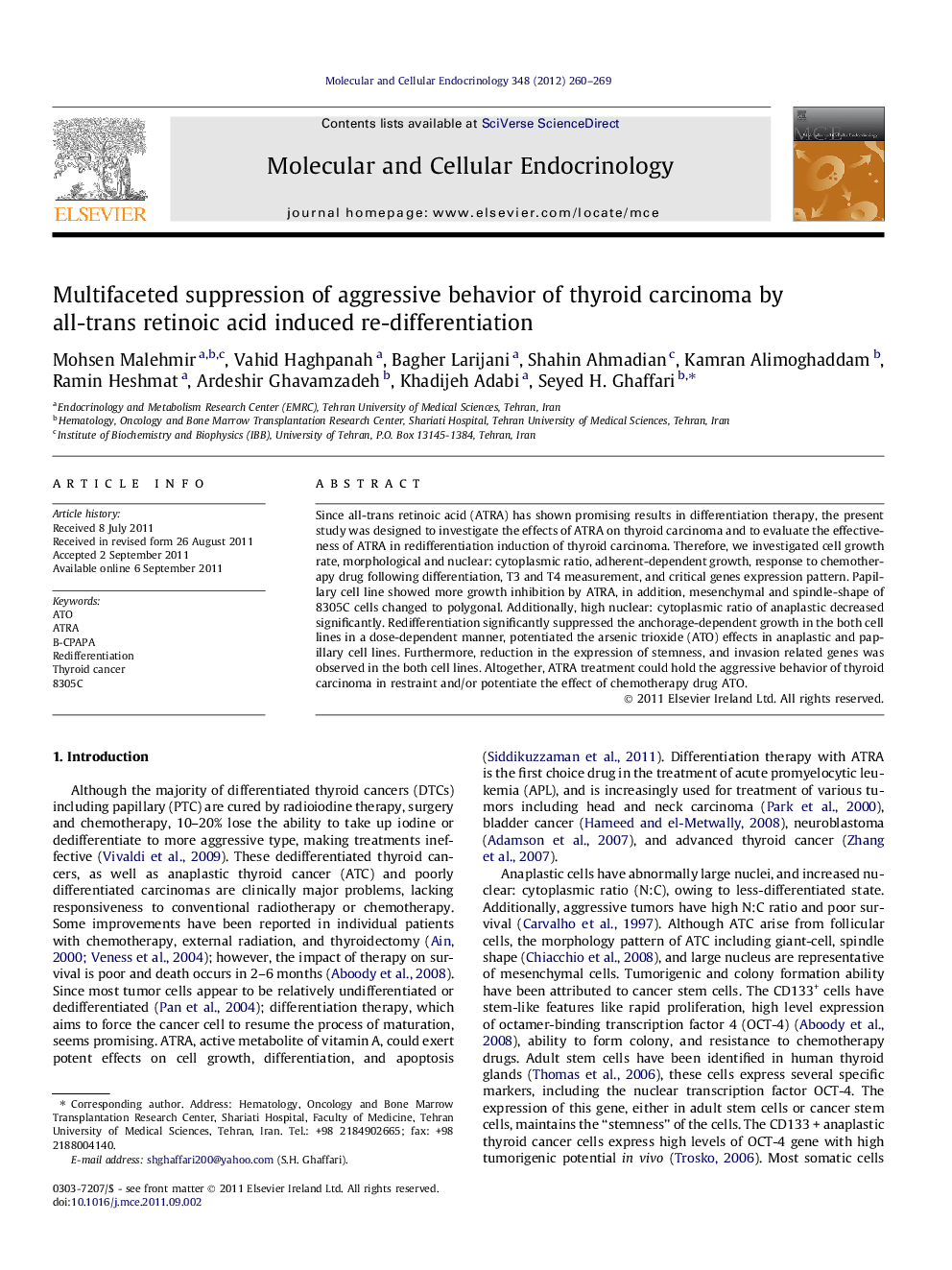| Article ID | Journal | Published Year | Pages | File Type |
|---|---|---|---|---|
| 2196523 | Molecular and Cellular Endocrinology | 2012 | 10 Pages |
Since all-trans retinoic acid (ATRA) has shown promising results in differentiation therapy, the present study was designed to investigate the effects of ATRA on thyroid carcinoma and to evaluate the effectiveness of ATRA in redifferentiation induction of thyroid carcinoma. Therefore, we investigated cell growth rate, morphological and nuclear: cytoplasmic ratio, adherent-dependent growth, response to chemotherapy drug following differentiation, T3 and T4 measurement, and critical genes expression pattern. Papillary cell line showed more growth inhibition by ATRA, in addition, mesenchymal and spindle-shape of 8305C cells changed to polygonal. Additionally, high nuclear: cytoplasmic ratio of anaplastic decreased significantly. Redifferentiation significantly suppressed the anchorage-dependent growth in the both cell lines in a dose-dependent manner, potentiated the arsenic trioxide (ATO) effects in anaplastic and papillary cell lines. Furthermore, reduction in the expression of stemness, and invasion related genes was observed in the both cell lines. Altogether, ATRA treatment could hold the aggressive behavior of thyroid carcinoma in restraint and/or potentiate the effect of chemotherapy drug ATO.
► Our finding suggests that ATRA effectively decrease N:C ratio in anaplastic thyroid. ► ATRA suppressed colony-forming capacity in 8305C and B-CPAP cell line. ► ATRA sensitized 8305C, B-CPAP cell lines to chemotherapeutically achievable ATO dose. ► Stem-cell and invasion-related markers down-regulation due to ATRA treatment observed.
